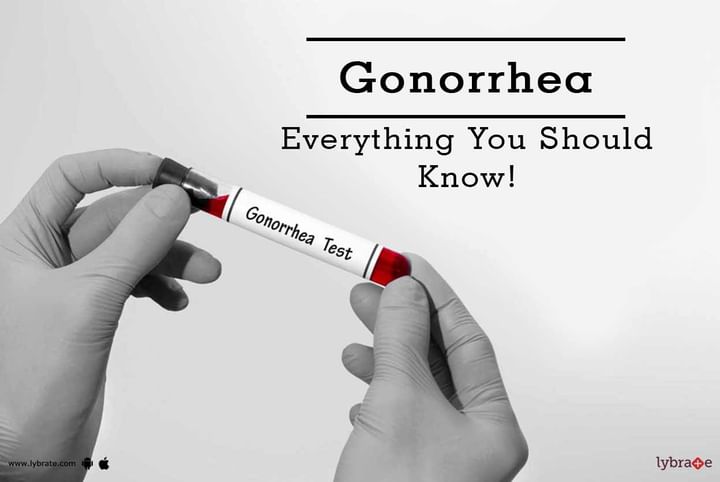Gonorrhea - Everything You Should Know!
What is Gonorrhea?
Gonorrhea is a sexually transmitted disease (STD). It’s caused by infection with the bacterium Neisseria gonorrhoeae. It tends to infect warm, moist areas of the body, including the:
-urethra (the tube that drains urine from the urinary bladder)
-eyes
-throat
-vagina
-anus
-female reproductive tract (the fallopian tubes, cervix, and uterus)
-Gonorrhea passes from person to person through unprotected oral, anal, or vaginal sex. People with numerous sexual partners or those who don’t use a condom are at greatest risk of infection. The best protections against infection are abstinence, monogamy (sex with only one partner), and proper condom usage. Behaviors that make a person more likely to engage in unprotected sex also increase the likelihood of infection.
These behaviors include alcohol abuse and illegal drug abuse, particularly intravenous drug use.
Causes:
- There are an estimated 820,000 new gonorrhea infections in the US each year.
- Gonorrhea is an infection caused by the bacterium Neisseria gonorrhoeae. It not only affects the reproductive tract, but can also affect the mucous membranes of the mouth, throat, eyes, and rectum.
- The infection is transmitted through sexual contact with an infected person involving the penis, vagina, anus, or mouth. Men do not need to ejaculate to transmit or acquire gonorrhea.
- Gonorrhea can also be passed from an infected mother to her baby during delivery.
- Although all sexually active individuals are at risk for acquiring gonorrhea, the highest rates of infection occur in teenagers, young adults, and African-Americans.
Symptoms:
Symptoms usually occur within two to 14 days after exposure. However, some people infected with gonorrhea never develop noticeable symptoms. It’s important to remember that a person with gonorrhea who doesn’t have symptoms, also called a nonsymptomatic carrier, is still contagious. A person is more likely to spread the infection to other partners when they don’t have noticeable symptoms.
Symptoms in men:
Men may not develop noticeable symptoms for several weeks. Some men may never develop symptoms.
Typically, the infection begins to show symptoms a week after its transmission. The first noticeable symptom in men is often a burning or painful sensation during urination. As it progresses, other symptoms may include:
-greater frequency or urgency of urination
-a pus-like discharge (or drip) from the penis (white, yellow, beige, or greenish)
-swelling or redness at the opening of the penis
-swelling or pain in the testicles
-a persistent sore throat
-The infection will stay in the body for a few weeks after the symptoms have been treated. In rare instances, gonorrhea can continue to cause damage to the body, specifically the urethra and testicles. Pain may also spread to the rectum.
Symptoms in women:
Many women don’t develop any overt symptoms of gonorrhea. When women do develop symptoms, they tend to be mild or similar to other infections, making them more difficult to identify. Gonorrhea infections can appear much like common vaginal yeast or bacterial infections.
Symptoms include:
-discharge from the vagina (watery, creamy, or slightly green)
-pain or burning sensation while urinating
-the need to urinate more frequently
-heavier periods or spotting
-sore throat
-pain upon engaging in sexual intercourse
-sharp pain in the lower abdomen
Diagnosis:
Diagnosis of gonorrhea in males is made on a gram stain of the urethral discharge by the presence of gram-negative diplococci are seen but are extracellular; a culture is required for diagnosis. The diagnosis of gonorrhea in females is made by culture of the cervix. The anal canal and pharynx should also be cultured in women and homosexual men. Blood cultures are unlikely to be positive for gonococcus 48 hours after the onset of gonococcemia.
Role of Homeopathy In Gonorrhea:
Homeopathy is one of the most popular holistic systems of medicine. The selection of remedy is based upon the theory of individualization and symptoms similarity by using holistic approach. This is the only way through which a state of complete health can be regained by removing all the sign and symptoms from which the patient is suffering. The aim of homeopathy is not only to treat gonorrhea but to address its underlying cause and individual susceptibility. As far as therapeutic medication is concerned, several remedies are available to treat gonorrhea that can be selected on the basis of cause, sensations and modalities of the complaints. For individualized remedy selection and treatment, the patient should consult a qualified homeopathic doctor in person.
Diet And Non-Diet:
-Garlic:
Garlic has several clinical studies backing its natural healing properties, and is an excellent food to consume if you have a bacterial or viral infection because it has well established antibacterial, antifungal and antiviral properties. If its pungent smell is something you can’t tolerate, you can safely consume it in a supplement.
-Pippali (Piper longum):
It belongs to the same family as your black and white pepper and is a well known household spice. Although, most of us don’t consider it anything beyond a flavoring agent, pippaliis tagged an ayurvedic herb for immunity. It is also said to possess detoxifying, rejuvenating and anti-inflammatory properties apart from being a digestive aid that also helps lower blood sugar levels.
-Cinnamon:
Cinnamon on clinical examination has shown to possess antiviral, antifungal, and antimicrobial properties, which definitely assists in boosting immune levels of your body. Also, cinnamon extracts regulate blood sugar levels, boost brain health, and fight inflammation.
-Ginger:
Ginger has earned its name as an antitode to motion sickness, but if you look beyond that benefit, ginger has shown to block microbial infections, ease inflammation, aid digestion, and much more. In fact, a study that investigated the effects of ginger and antibiotics on the Staphylococcus aureus and S. pyreus strains reported that ginger emerged as being potentially superior.
-Turmeric:
You will hardly find another winner other than turmeric when you compare the outstanding benefits this herb has to offer. It has unique anti-microbial powers and its versatility is evident in its potential to ease inflammation, fight free radicals, boost immunity and detoxify various organs of your body.
-Neem:
Several studies have promoted neem’s use as a natural bactericide, microbicide, and pesticide. Neem is also known for its immuno-stimulating properties for cell mediated and lymphocytic immune-systems. So including neem in your health regimen may improve your antibody production and the ability of your cells to fight against infections.
FOODS TO AVOID:
Foods Best Avoided are:
-Alcohol, tobacco, tea, coffee or beverages with caffeine as these are known to irritate the bladder and worsen inflammation and pain in the bladder.
-Spices, chilies, hot pepper and hot food.
-Foods and beverages containing artificial sweeteners
-So, if you’ve been battling a gonorrhea infection and antibiotics are not seemingly to help or you want to explore any other possible alternative treatment options for gonorrhea, then you must review our unique, exclusive, and multidisciplinary immune boost protocols that have been specially formulated to strengthen your immunity and make your body stronger and capable of fending off any infection that might breach the protective defenses of your body.
Biogetica meticulously studies each ingredient before combining them in a formulation and each ingredient can be traced back to its ayurvedic, homeopathic and nutraceutical roots so that you have a holistic, comprehensive and an integrated protocol for optimum health and freedom.



+1.svg)
